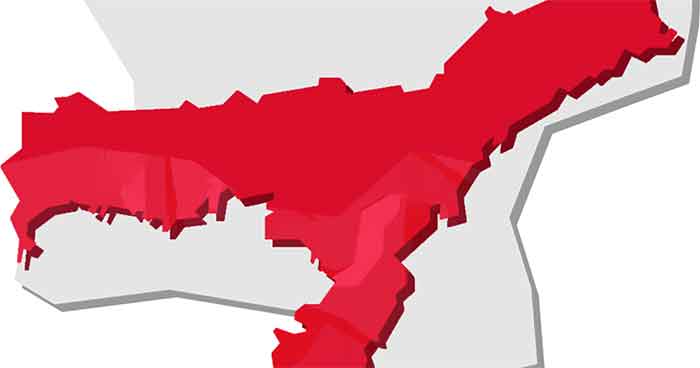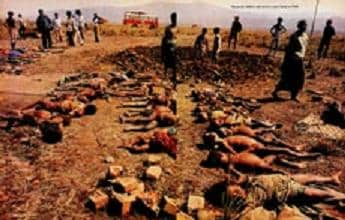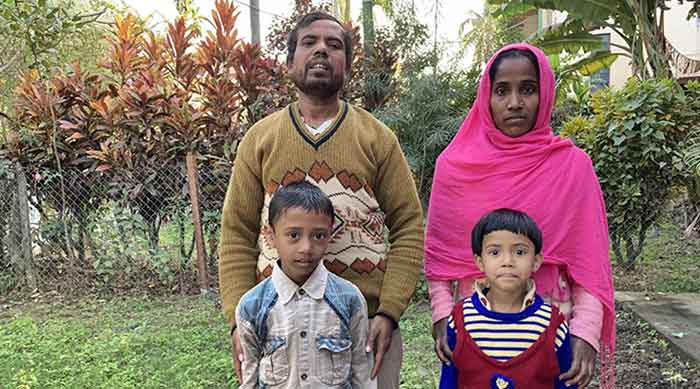
To
Secretary
National Human Rights Commission (NHRC)
Sir,
I refer to my letters dated 4-1-2021 & 16-1-2021 on violation of human rights of the detainees under the the Foreigners Act, 1946, the Foreigners (Tribunals For Assam) Order, 2006 and the other related laws in force in Assam. I have enclosed here copies of the two letters for your ready reference. I am sure that the concerns expressed by me have already attracted the Commission’s attention.
I take further liberty in this representation to bring to the attention of the Commission more instances of human rights violations in Assam with special reference to persons detained under the Foreigners Act.
While the laws relating to citizenship need to be fully complied with, the quality of investigation into cases relating to citizenship in Assam seems to be unsatisfactory, as borne out by the case of the arbitrary and illegal detention of Mohammad Nur Hussain and his family, especially the two minor children, as indicated in the two earlier letters cited above. Many innocent persons including children are finding themselves incarcerated for long periods, as a result of their lack of knowledge of the legal intricacies of the cases filed against them and their inability to access legal help. While some of them were indeed released from detention by the local courts, the process of their arbitrary detention for years together leaves them traumatised and their children deprived of their right to living in an environment conducive to healthy mental development and their right to education. At the end of detention, there are no mechanisms to compensate the families for the wrong done to them.
A more distressing aspect of the detentions made under the Foreigners’ Act of 1946 [and the related orders/ notifications issued from time to time] is the manner in which persons alleged to be “foreigners” are forced into detention camps in the State for arbitrarily long periods and the manner in which, both undertrials and convicts are deprived of the basic human rights to which they are entitled, both in pursuance of the domestic laws and the UN conventions on human rights and juvenile justice to which India is a party.
In this connection, I wish to draw the attention of the Commission to a well researched article, “Graveyards of the Living Dead: Former Inmates on Life in Assam’s Notorious Detention Centres” [https://thewire.in/rights/assam-goalpara-detention-centre-nrc-citizenship]. The article describes how “designated as foreign nationals living illegally in India, women, men and children, mostly poor, illiterate and from marginalised communities, suffer under inhumane conditions at these centres”.
Extracts of the more distressing portions of the article are reproduced below.
“……….. lost his father when he was a 13-month-old infant. Then for 13 years, he worked as a pet-bhati, a near slave, labouring in exchange for food. As a grown up,…….., like many other poor, landless people, applied for a plot of government land as part of a state government scheme for the rehabilitation of victims of land erosion.
But instead of allotting him the land, the government alleged that he was a foreigner even though his name had been recorded in the 1951 NRC. A foreigners’ tribunal then declared that ……. was a foreign national and he was taken to Goalpara detention centre from where, after almost three years, he was released on an interim bail order from the Gauhati high court.
Because …… had not completed his three years at the detention centre, he was not eligible for release. But in the latter part of his third year in detention, ……’s family sold their only plot of land and paid a lawyer Rs 80,000 for his bail from the Gauhati high court
Goalpara detention centre, said ……, is a dark place, devoid of light and hope. “Sometimes 60 to 70 people were crammed into one room like a herd of cattle. After 5 pm, there was no one to listen to our plight,” he said. According to him, the detention centre officials planted three or four convicted criminals in each cell to discipline the detainees.”
…………………………
Detained in Kokrajhar detention centre for eight months between October 2016 and August 2017, …….. of Goalpara district had been a victim of mistaken identity. She had had no case against her, but had been arrested by the police as a declared foreign national. “In the detention centre, I couldn’t eat, I couldn’t sleep,” said Arjina. “I could only wonder what I had done for them to put me in this hell.
……………………
For …, the detention centre was a graveyard of the living dead, filled with hopeless bodies controlled by an unknown power. The detainees frequently thought of death and heard news of death. ….himself witnessed three deaths in the detention centre. One of the three was a young Bengali Hindu man from Goalpara. “He was leaning against the wall of the cell. He didn’t speak and move for a long time. When someone touched him, he fell down. He was dead,” said …
……………
When … was arrested, the police had told him that he would be freed as soon as a higher court overruled the tribunal’s order. But in the detention centre, he found detainees who had been there from five to seven years because no courts had overruled the orders of the tribunal. He also met a few actual Bangladeshi and other foreign nationals who were desperate to return to their countries but had been languishing in detention for years.
An illiterate man, …. believes his only crime was that when he was asked by the foreigners’ tribunal to name Assam’s chief minister, he could not answer. “I have not even killed an ant, how they can punish me more than people who have committed heinous crimes like rape and murder?” he asked…………
Like …., many people had no idea why they had been declared foreigners”
Often, inadequate police strength is cited by the police for delays in investigation, whereas the role played by the police and the prosecution functionaries is far more responsible for delaying investigation and trial processes. It is well known that a great majority of undertrials languish in prisons because the police do not finish investigation and file the charge-sheet in time. “In Assam….., where 80 out of every 100 cases are pending before the court, some 59 percent of cases are yet to be investigated by police. The reason for arbitrary detentions and delays in justice being meted out to the undertrials is that there is no effective oversight of the investigation work and the role of the prosecuting officers”. [https://www.orfonline.org/wp-content/uploads/2015/08/IssueBrief_103.pdf]
In a landmark judgement in the Prakash Singh case, the apex court had directed the States, as long ago as on 22-9-2006, to adopt specific reforms aimed at depoliticising and professionalising the police force and ensuring that investigation work is separated from the law and order function of the police. Most States including Assam have not fully complied with those directions, as a result of which police investigations in the States continue to be unsatisfactory.
The apex court has directed the States not to detain undertrials beyond a reasonable period. The article cited above suggests detentions in excess of the same.
The maximum punishment under the Foreigners Act, 1946 is only five years whereas it appears that detentions under the Act in the case of undertrials have, in some cases, exceeded the same. This calls for an urgent review, as such detainees would have already suffered the penalty more than what is due, though they may not have been found to be guilty.
The apex court and the Commission have issued guidelines on how convicts/ undertrials should be treated. An undertrial cannot be detained arbitrarily for unreasonably long periods, when he/ she has not been found to be guilty. Lack of access to legal help should not be allowed to stand in the way of justice being delivered to undertrials. Children cannot be denied care and educational opportunities merely for the reason that their parents are detained. When an undertrial is finally found to be innocent, there should be effective mechanisms in place to compensate for the injustice meted out to them during the unduly long period of detention they were forced to go through for no fault of theirs. Often, detentions are made as a result of instigation and insightful statements made by irresponsible political leaders. Those officers and those political leaders, who are found to be responsible for arbitrary detentions and tardy investigations that have resulted in the kind of human rights violations that are taking place, should be invariably identified and proceeded against, as per the law.
Against the above background, I appeal to the Commission to order a review of the conditions in which the detention camps in Assam are being run, to what extent human rights violations, especially child rights violations are taking place, the need to compensate those who have gone through detention, though they are finally found to be innocent, the action to be taken against the errant officers and political leaders responsible for indiscriminate detentions and the need to de-politicise the police, separate investigation from the law & order function and subject it to more effective judicial monitoring and scrutiny.
Timely intervention by the Commission will undoubtedly go a long way towards reinforcing the public trust in the rule of law in Assam with specific reference to enforcement of the Foreigners Act and the related Orders/ Notifications.
Thanking you,
Yours sincerely,
E A S Sarma
Former Secretary to GOI
Visakhapatnam
GET COUNTERCURRENTS DAILY NEWSLETTER STRAIGHT TO YOUR INBOX















































